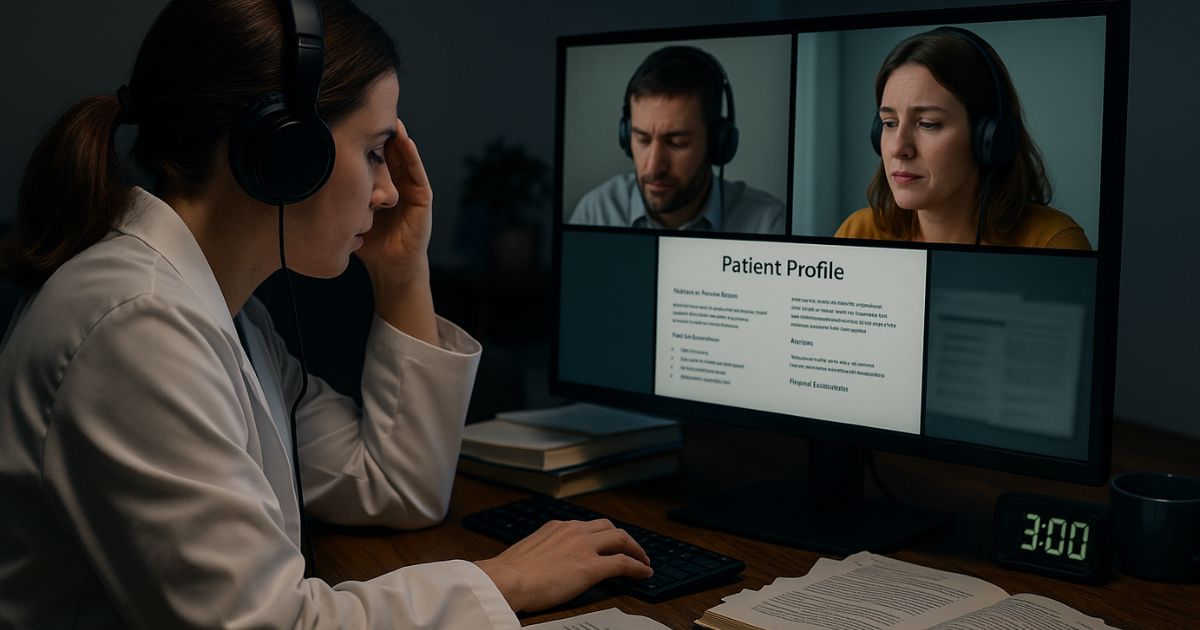Why This Station Matters
Imagine you are in the hospital setting. A healthcare provider approaches you with a question:
"Is it safe to prescribe clopidogrel for a patient with ACS who has been taking omeprazole for years for peptic ulcer disease?"
This is a classic OSCE scenario. Many candidates know there is an interaction, but the difference between a marginal and a fully solved score lies in how you explain it, structure your advice, and suggest management strategies.
What Examiners Expect
Your performance is graded across three domains. To achieve top marks, you must:
- • Communicate professionally: Stay respectful, organized, and clear in your explanations.
- • Identify the outcome: Confirm the drug interaction, explain the mechanism, and propose management strategies.
- • Demonstrate overall performance: Show clinical reasoning, problem-solving, and commitment to patient safety.
Each of these domains contributes to your final OSCE score. Missing even one element may drop you from "fully solved" to "marginally solved."
Example of a High-Scoring Response
Here's how a strong candidate might respond during the consultation:
"Thanks for raising this. Before we decide, could I quickly confirm a few details—any recent ulcer flare-ups, other medications, and how the patient's kidney and liver function are?"
[pause for clarification]
"Yes, there is a significant interaction between clopidogrel and omeprazole. Omeprazole blocks the CYP2C19 enzyme, which is essential for activating clopidogrel. That means clopidogrel may not work as effectively, leaving the patient at higher risk of clotting.
There are two safe options we can consider: first, switching omeprazole to pantoprazole or rabeprazole, which don't interfere with clopidogrel. Second, if clinically appropriate, we could trial discontinuation of omeprazole if the ulcer is stable. I'd be happy to support with patient education and follow-up whichever option you choose."
Notice how this response is structured, clear, and collaborative. It provides the mechanism, identifies the risk, and offers two practical management strategies.
Common Pitfalls
Candidates often lose marks by making one of the following mistakes:
- • Claiming there is no interaction (unsafe → fully unsolved).
- • Mentioning the interaction but failing to explain the mechanism (drops to marginal).
- • Providing only one management option (drops to marginal).
- • Using overly technical jargon without explanation (hurts communication).
How to Secure a Fully Solved Score
To maximize your marks, remember the following approach:
- Gather information – confirm patient history, ulcer control, organ function, and duration of omeprazole use.
- Confirm the interaction – clearly state that omeprazole inhibits CYP2C19 and reduces clopidogrel activation.
- Explain the risk – emphasize the clinical consequence: reduced efficacy of clopidogrel.
- Offer two safe alternatives – switch to pantoprazole/rabeprazole, or consider discontinuation if safe.
- Communicate professionally – keep the tone collaborative and supportive.
Key Takeaway
This station is about more than memorizing drug interactions. Examiners want to see how you integrate knowledge into practice while communicating in a clear, professional way. By covering history, mechanism, risks, and two management options, you demonstrate excellence across Patient Care, Knowledge Application, and Communication.
That's what turns a safe but partial answer into a fully solved OSCE performance.
Watch the Video Tutorial
Hassan Torkamandi, PharmD, RPh
CEO, Simulabs Technologies Inc.
Ready to Master OSCE Drug Interaction Stations?
Practice with our interactive mock exams featuring realistic drug interaction scenarios with detailed feedback.
Start Your Practice


